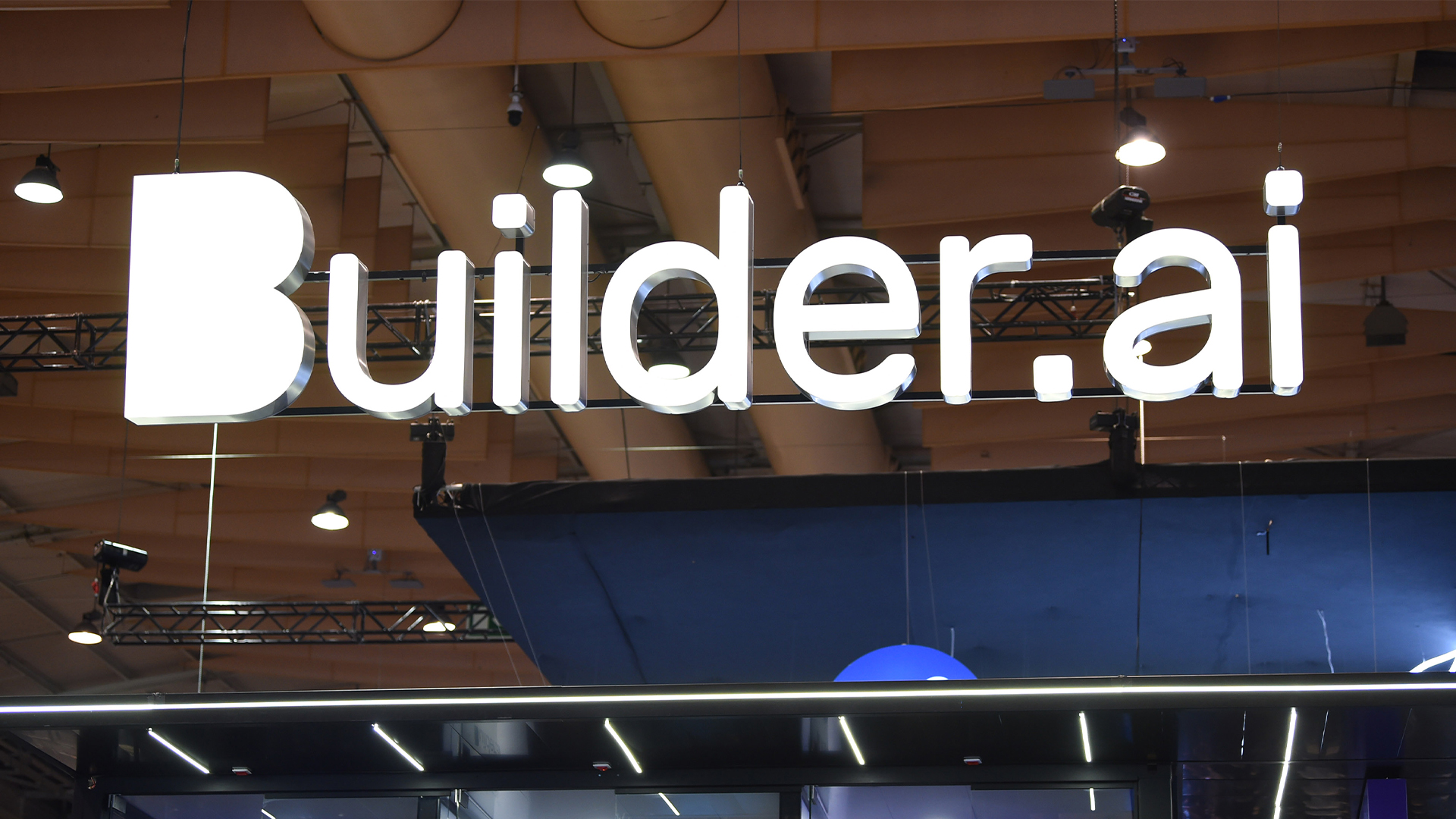‘The latest example of FOMO investing’: Why the Builder.ai collapse should be a turning point in the age of AI hype
The collapse of Builder.ai is shocking, but not exactly surprising given the hype surrounding the technology


Sign up today and you will receive a free copy of our Future Focus 2025 report - the leading guidance on AI, cybersecurity and other IT challenges as per 700+ senior executives
You are now subscribed
Your newsletter sign-up was successful
When the house of cards came tumbling down for Builder.ai, it may have shocked some industry stakeholders, but for others it was a sign of an inherently broken ecosystem.
The high flying startup was one of a number of companies looking to capitalize on the generative AI boom, particularly the use of the technology in software development.
The profession has seen an influx of AI tools over the last 18 months, and this is now a booming marketplace, with industry giants battling it out over who can deliver the most value for engineers and devs, and most importantly, drive productivity.
Builder.ai was, arguably, among the pick of the bunch in this regard. Founded in 2016 and formerly known as Engineer.ai, the company offered AI-powered tools that allowed users to create applications with little or no coding expertise.
With the generative AI gold rush gaining momentum in late 2022 and early 2023, the company had suitors scrambling to get involved. It raised over $450 million in funding, including from big-name investors like Microsoft and Qatar's sovereign wealth fund.
So, where did it all go wrong? In May, a viral tweet accused the company of hiring a 700-strong army of engineers in India to basically carry out the legwork that the so-called ‘AI’ was supposed to be doing.
The company strongly disputes this claim, and there’s little evidence to suggest there’s any credibility in the accusation.
Sign up today and you will receive a free copy of our Future Focus 2025 report - the leading guidance on AI, cybersecurity and other IT challenges as per 700+ senior executives
It’s worth noting that a 2019 report from the Wall Street Journal claimed the startup admitted to using human engineers, rather than AI, to carry out coding tasks.
Notably, the WSJ report mentioned that employees at the firm said the company exaggerated its capabilities in a bid to attract both customers and investors.
It appears that the grandiose claims bandied around by the company continued after its rebranding, but the real damage lay in the numbers, not the tech.
According to reports from the Financial Times, the startup is believed to have “overstated sales by as much as four times” and was facing serious debt problems.
The FT reported that the firm owed Amazon Web Services (AWS) $88 million and Microsoft around $30 million, for example.
Meanwhile, separate reporting from Bloomberg revealed a lender seized $37 million after finding it generated $50 million in revenue. That’s by no means a measly figure, but that stands 300% lower than the firm’s claim of a $220 million revenue stream.
The Builder.ai collapse is an indictment of the industry
Carrie Osman, CEO of private equity advisor, Cruxy, said the startup is the “latest example of FOMO investing”, whereby venture capital firms and industry stakeholders alike rush headlong into throwing money at companies.
Ultimately, it’s an indictment of the state of the industry and the hype surrounding the technology.
“Technology like GenAI has been massively overhyped in recent years, and investors and boards are under increasing pressure to find the latest, sexiest uses for AI,” Osman said.
“Driven by FOMO rather than fundamentals, investors are rushing into deals with minimal scrutiny, inflating valuations, and sidelining due diligence.”
The hype saturating this industry has sparked some concerns in recent months, particularly over the viability of many startups emerging in the space.
Indeed, a report from Silicon Valley Bank (SVB) in May issued a warning over the rise of ‘zombiecorns’ in the ecosystem.
These are essentially startups that raise huge sums of money but fail to build sustainable revenue streams. Fresh on the high of a major fundraise, many of these companies actually prove to be chronically unprepared post-funding.
The combination of high infrastructure costs, sluggish revenue growth, and the incessant demand for a quick return on investment (ROI) means a concerning portion of companies in the AI space are destined to fail.
Many of these failing startups seemingly fly under the radar without so much as a headline - and it’s largely due to the sheer amount of cash pouring into the space, which, it has to be said, is being driven by the leading industry figures banging the drum for the technology.
Analysis from the bank shows around 40% of all investment raised by funds last year came from those that “list AI as a focus”.
Compare that to 2021 where just 10% of venture capital investment went toward AI startups, and it shows many investors are willing to take the chance on investing in firms that are essentially just enterprise software with a shiny AI wrapper.
Make sure to follow ITPro on Google News to keep tabs on all our latest news, analysis, and reviews.
MORE FROM ITPRO
- Why the UK keeps losing promising startups
- The UK's AI sector is booming – but can the country hang on to its startups?
- Building a Generative AI Product for Startup Founders

Ross Kelly is ITPro's News & Analysis Editor, responsible for leading the brand's news output and in-depth reporting on the latest stories from across the business technology landscape. Ross was previously a Staff Writer, during which time he developed a keen interest in cyber security, business leadership, and emerging technologies.
He graduated from Edinburgh Napier University in 2016 with a BA (Hons) in Journalism, and joined ITPro in 2022 after four years working in technology conference research.
For news pitches, you can contact Ross at ross.kelly@futurenet.com, or on Twitter and LinkedIn.
-
 Microsoft Copilot bug saw AI snoop on confidential emails — after it was told not to
Microsoft Copilot bug saw AI snoop on confidential emails — after it was told not toNews The Copilot bug meant an AI summarizing tool accessed messages in the Sent and Draft folders, dodging policy rules
-
 Cyber experts issue warning over new phishing kit that proxies real login pages
Cyber experts issue warning over new phishing kit that proxies real login pagesNews The Starkiller package offers monthly framework updates and documentation, meaning no technical ability is needed
-
 Google says hacker groups are using Gemini to augment attacks – and companies are even ‘stealing’ its models
Google says hacker groups are using Gemini to augment attacks – and companies are even ‘stealing’ its modelsNews Google Threat Intelligence Group has shut down repeated attempts to misuse the Gemini model family
-
 Why Anthropic sent software stocks into freefall
Why Anthropic sent software stocks into freefallNews Anthropic's sector-specific plugins for Claude Cowork have investors worried about disruption to software and services companies
-
 B2B Tech Future Focus - 2026
B2B Tech Future Focus - 2026Whitepaper Advice, insight, and trends for modern B2B IT leaders
-
 What the UK's new Centre for AI Measurement means for the future of the industry
What the UK's new Centre for AI Measurement means for the future of the industryNews The project, led by the National Physical Laboratory, aims to accelerate the development of secure, transparent, and trustworthy AI technologies
-
 Half of agentic AI projects are still stuck at the pilot stage – but that’s not stopping enterprises from ramping up investment
Half of agentic AI projects are still stuck at the pilot stage – but that’s not stopping enterprises from ramping up investmentNews Organizations are stymied by issues with security, privacy, and compliance, as well as the technical challenges of managing agents at scale
-
 What Anthropic's constitution changes mean for the future of Claude
What Anthropic's constitution changes mean for the future of ClaudeNews The developer debates AI consciousness while trying to make Claude chatbot behave better
-
 Satya Nadella says a 'telltale sign' of an AI bubble is if it only benefits tech companies – but the technology is now having a huge impact in a range of industries
Satya Nadella says a 'telltale sign' of an AI bubble is if it only benefits tech companies – but the technology is now having a huge impact in a range of industriesNews Microsoft CEO Satya Nadella appears confident that the AI market isn’t in the midst of a bubble, but warned widespread adoption outside of the technology industry will be key to calming concerns.
-
 Workers are wasting half a day each week fixing AI ‘workslop’
Workers are wasting half a day each week fixing AI ‘workslop’News Better staff training and understanding of the technology is needed to cut down on AI workslop